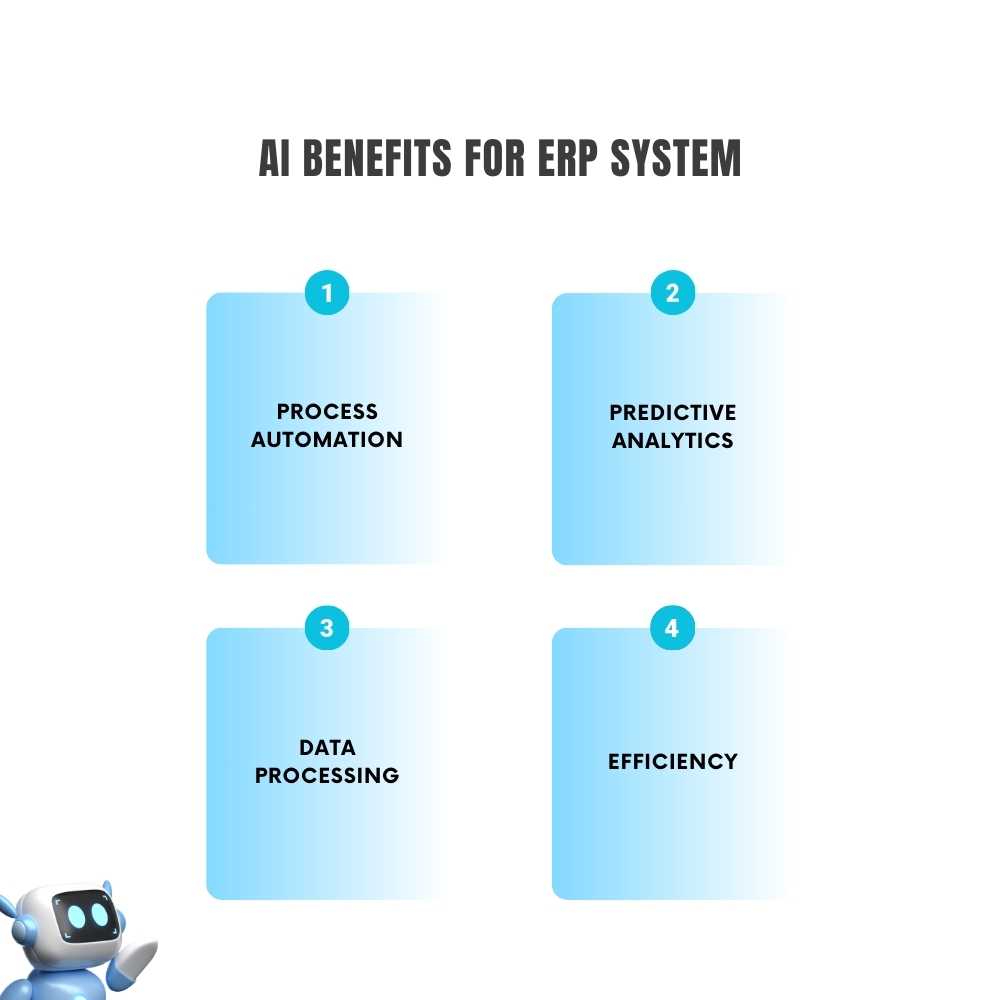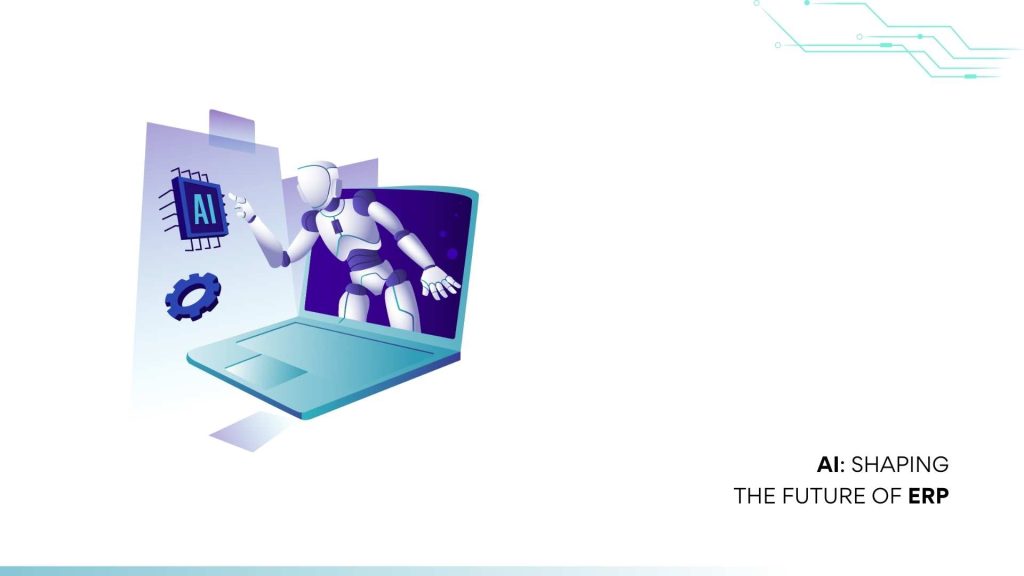Automation and artificial intelligence (AI) are converging to create an ERP system that can change industries’ operations. This convergence heralds a new era in ERP, reshaping operational landscapes and driving unparalleled efficiency and innovation.
From Legacy Systems to Intelligent Solutions
Traditionally, ERP systems have been the backbone of organizational operations, streamlining processes across finance, HR, supply chain, and beyond. However, the legacy ERP landscape often needed to be improved in agility, predictive capabilities, and adaptability to dynamic market shifts.
Enter automation and AI: catalysts propelling ERP systems from mere record-keepers to intelligent, proactive decision-making engines. Automation empowers ERP by handling repetitive tasks and freeing human resources for strategic initiatives. Meanwhile, AI, through machine learning algorithms and predictive analytics, empowers ERP to anticipate trends, forecast demands, and optimize operations in real-time.
Driving Forces: How Automation and AI Enhance ERP
Streamlined Operations: Automation within ERP minimizes manual intervention, accelerating processes such as data entry, inventory management, and report generation. Streamlining saves time and reduces errors, enhancing overall operational efficiency.
Data-Driven Insights: AI algorithms embedded in ERP systems unlock the potential of data by analyzing patterns and providing actionable insights. Real-time data analytics enable informed decision-making, empowering businesses to react swiftly to market shifts and consumer demands.
Enhanced Customer Experience: By leveraging AI-powered CRM modules, ERP systems can personalize customer interactions, foresee customer needs, and optimize service delivery. This level of customization elevates the overall customer experience, fostering loyalty and satisfaction.
Agility and Adaptability: With automation and AI, ERP systems become agile, adapting to evolving business landscapes. They enable quick production, supply chain, and resource allocation adjustments, responding adeptly to market fluctuations and unforeseen disruptions.
Looking Ahead: The Future Landscape
The future of ERP lies in a harmonious blend of human expertise and technological prowess. As automation and AI evolve, ERP systems will become more intuitive, capable of self-learning, and adept at predictive decision-making.

Challenges
Integrating AI into ERP systems holds immense promise, yet it also presents several challenges that organizations need to address:
Data Quality and Compatibility: The effectiveness of AI relies heavily on data quality and compatibility. ERP systems often contain diverse data formats and sources. Ensuring this data’s quality, consistency, and compatibility is crucial for AI algorithms to derive meaningful insights. Cleansing and harmonizing data across the ERP ecosystem is a significant challenge.
Lack of Skilled Talent: Implementing AI within ERP systems requires specialized expertise. The need for more professionals proficient in both AI technologies and ERP systems poses a challenge. Organizations must invest in training or hiring skilled talent to bridge the gap between these domains.
Ethical and Regulatory Concerns: AI-powered ERP systems raise ethical and regulatory concerns, especially regarding data privacy, bias, and transparency. Ensuring adherence to data protection laws and ethical use of AI algorithms is essential. Balancing innovation with ethical considerations becomes pivotal in this integration.
Integration Complexity: Integrating AI into existing ERP infrastructure can be complex. Legacy systems may need to be more readily adaptable to accommodate AI functionalities. Seamless integration without disrupting ongoing operations becomes challenging, requiring careful planning and execution.
Performance Monitoring and Validation: AI-driven ERP systems require continuous monitoring and validation. Ensuring AI algorithms’ accuracy, reliability, and performance within ERP processes is a perpetual challenge. Regular updates, validation checks, and fine-tuning are essential for optimal performance.
Conclusion
Acumatica Cloud ERP, integrating AI and Automation, emerges as a transformative force for businesses. By harnessing the power of AI, it streamlines operations, offering predictive analytics and data-driven insights that optimize decision-making.
Automation simplifies workflows, reducing manual errors and accelerating processes, fostering efficiency and productivity. Together, these innovations within Acumatica empower businesses to adapt swiftly, make informed strategic choices, and achieve heightened agility in today’s dynamic market landscape.

Vijay comes with a vast experience in ERP and enterprise solutions space with about 20 years of experience in various packaged application like Acumatica, SAP, Orion, Salesforce.com, SugarCRM and, SalesLogix.

